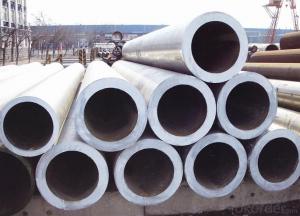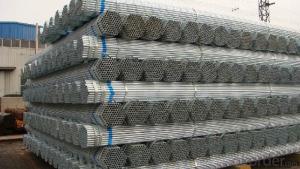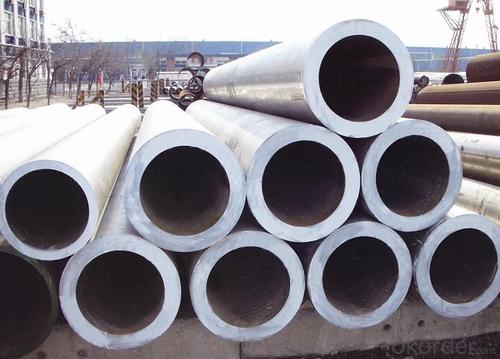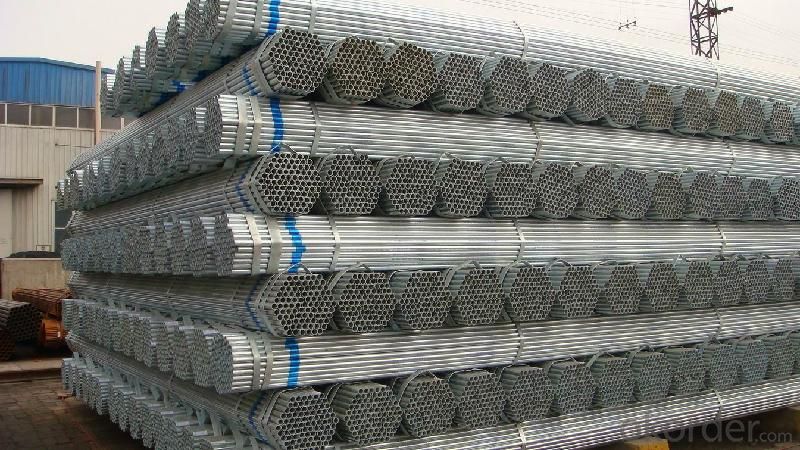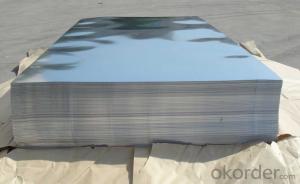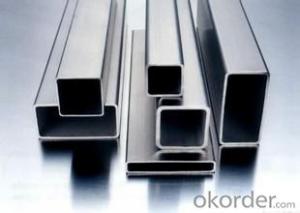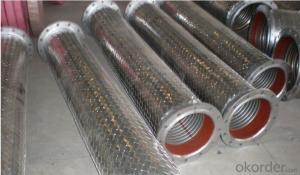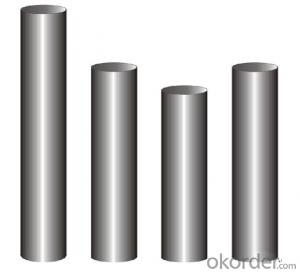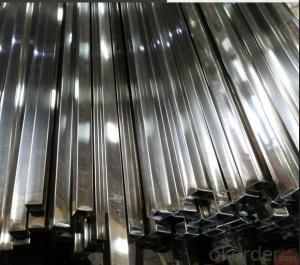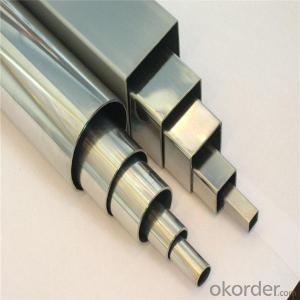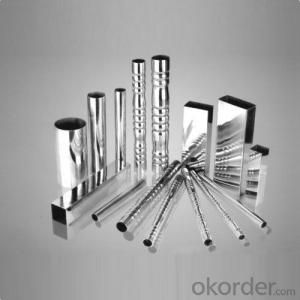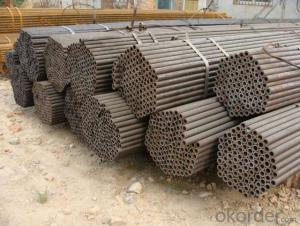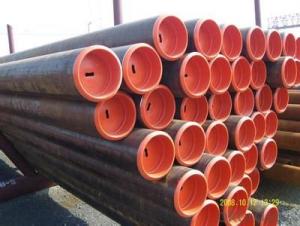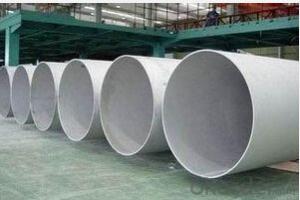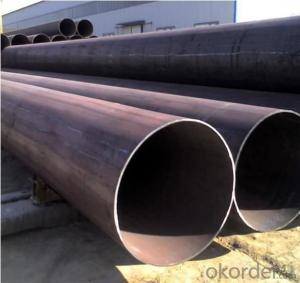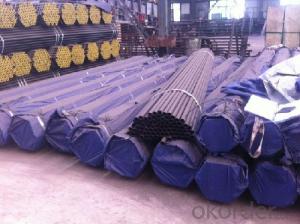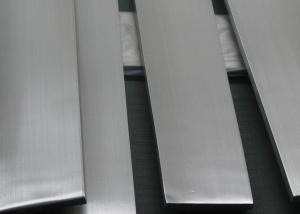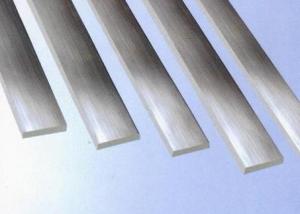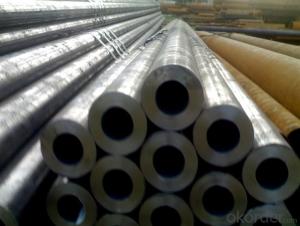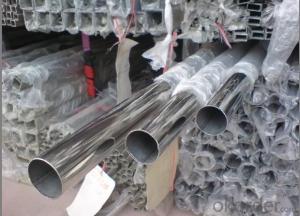Large Diameter Stainless Steel Pipe for wholesales
- Loading Port:
- Tianjin
- Payment Terms:
- TT OR LC
- Min Order Qty:
- 35 m.t.
- Supply Capability:
- 5000 m.t./month
OKorder Service Pledge
OKorder Financial Service
You Might Also Like
Specification
Structure :
Seamless pipe is formed by drawing a solid billet over a piercing rod to create the hollow shell. As the manufacturing process does not include any welding, seamless pipes are perceived to be stronger and more reliable. Historically seamless pipe was regarded as withstanding pressure better than other types, and was often more easily available than welded pipe.
Main Features :
• High manufacturing accuracy
• High strength
• Small inertia resistance
• Strong heat dissipation ability
• Good visual effect
• Reasonable price
Specification:
1) Material:20#(ASTM A 106/A53 GRB.API5LGRB,GB),45#,16Mn,10#.
2) Specification range:OD:21.3-610mm,WT:6-70mm,length:6-12m or according to the requirement of clients.
3) Excutive standards:GB,ASME API5L.ASTM A 106/A53,Despite of the above standards,we can also supply seamless steel pipe with standard of DIN,JIS,and so on,and also develop new products according to the requirements of our clients!
4) Surface:black lacquered,varnish coating or galvanized.
5) Ends:Beveled or square cut,plastic capped,painted.
6) Packing:bundles wrapped with strong steel strip,seaworthy packing.
FAQ :
A. How is the quality of your products?
Our products are manufactured strictly according to national and internaional standard, and we take a test on every pipe before delivered out. If you want see our quality certifications and all kinds of testing report, please just ask us for it.
Guaranteed: If products’ quality don’t accord to discription as we give or the promise before you place order, we promise 100% refund.
B. How about price?
Yes, we are factory and be able to give you lowest price below market one, and we have a policy that “ for saving time and absolutely honest business attitude, we quote as lowest as possible for any customer, and discount can be given according to quantity”,if you like bargain and factory price is not low enough as you think, just don’t waste your time.Please trust the quotation we would give you, it is professional one.
C.Why should you chose us?
Chose happens because of quality, then price, We can give you both.Additionally, we can also offer professional products inquiry, products knowledge train(for agents), smooth goods delivery, exellent customer solution proposals.Our service formula: good quality+good price+good service=customer’s trust
SGS test is available, customer inspection before shipping is welcome, third party inspection is no problem.
Any question, pls feel free to contact us !
Product image:
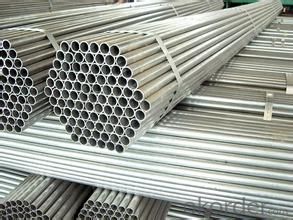
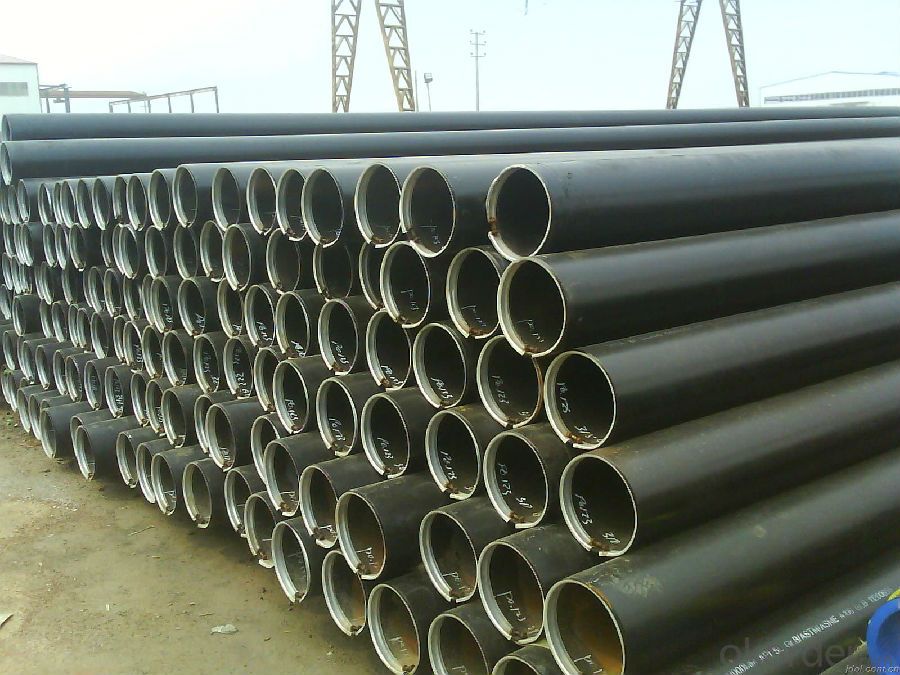
Company Information:
CNBM International Corporation (CNBM International) is the most important trading platform of CNBM Group Corporation, a state-owned company under the direct supervision of State-owned Assets Supervision and Administration Commission of the State Council.
Since 2004, the trading volume of CNBM International has been doubled in 5 successive years owing to the support of superior corporations and effort of all staff. Meanwhile, we have established strategic partnerships with hundreds of domestic manufacturers and sound business relations with clients from over 120 countries. Currently, we have wholly-owned overseas subsidiaries and branches in 5 countries with a view to realize localization, which also represents an essential progress in our globalization target.
- Q: How do you prevent leakage in stainless steel pipes?
- One way to prevent leakage in stainless steel pipes is to ensure proper installation and fitting of the pipes. This includes using high-quality gaskets, seals, and compression fittings that are compatible with stainless steel. Additionally, regular inspection and maintenance of the pipes, including checking for any signs of corrosion or damage, can help identify and address potential leak points before they become problematic.
- Q: Can stainless steel pipes be buried in soil?
- Yes, stainless steel pipes can be buried in soil. Stainless steel is highly resistant to corrosion and can withstand the harsh conditions of being buried underground, making it a suitable choice for various underground applications such as drainage, sewage, and water supply systems.
- Q: What is the difference between bright annealed and annealed pickled stainless steel pipes?
- Bright annealed and annealed pickled stainless steel pipes differ in their surface finish and treatment processes. Bright annealed stainless steel pipes undergo a heat treatment known as annealing in a controlled atmosphere to eliminate internal stresses and improve the material's ductility. This process also results in a bright and shiny surface finish, making the pipes suitable for applications that require an aesthetically pleasing appearance, such as decorative or architectural purposes. On the other hand, annealed pickled stainless steel pipes undergo a two-step treatment process. First, the pipes are annealed to remove any stresses and improve their mechanical properties. Then, they undergo a pickling process where the surface is chemically treated to remove scale, oxides, and other impurities. This treatment leaves the pipes with a dull and rough surface finish, which is often desired for applications that require subsequent coatings, such as painting or galvanizing. In summary, the main difference between bright annealed and annealed pickled stainless steel pipes lies in their surface finish. Bright annealed pipes have a bright and shiny appearance, while annealed pickled pipes have a dull and rough surface finish due to the pickling process. The choice between the two types depends on the specific requirements of the intended application.
- Q: Are stainless steel pipes suitable for sewage treatment plants?
- Stainless steel pipes are indeed appropriate for sewage treatment plants. This is because stainless steel is an incredibly tough and corrosion-resistant material, which makes it well-suited for the harsh and corrosive conditions commonly found in sewage treatment plants. The material's superior resistance to corrosion prevents the pipes from deteriorating over time, ensuring a lengthier lifespan and reducing the necessity for frequent maintenance or replacements. Moreover, stainless steel pipes possess exceptional hygienic qualities, which are vital for sewage treatment plants to maintain proper sanitation. The smooth surface of these pipes prevents the accumulation of bacteria, biofilm, and other contaminants, making it easier to clean and sustain a high level of cleanliness. Additionally, stainless steel is environmentally friendly since it is entirely recyclable, thus contributing to sustainable practices in sewage treatment plants. In summary, stainless steel pipes are a dependable and suitable option for sewage treatment plants due to their durability, resistance to corrosion, hygienic properties, and eco-friendliness.
- Q: Can stainless steel pipes be bent or shaped easily?
- Stainless steel pipes can be bent or shaped, but the ease of bending or shaping depends on various factors such as the thickness, diameter, and grade of the stainless steel. Generally, stainless steel pipes have a higher resistance to bending compared to other materials like copper or aluminum. However, with the use of specialized tools and techniques such as pipe benders or hydraulic presses, stainless steel pipes can be bent or shaped to desired angles or curves. It is important to note that excessive bending or shaping may cause the stainless steel pipe to weaken or distort, so it is crucial to follow proper procedures and guidelines to ensure the structural integrity of the pipe is maintained.
- Q: Are stainless steel pipes suitable for fire protection systems?
- Yes, stainless steel pipes are suitable for fire protection systems. Stainless steel has excellent fire resistance properties, including high melting point and resistance to corrosion and oxidation. These pipes are highly durable and can withstand extreme temperatures and pressure, making them ideal for fire protection systems that require reliable and long-lasting performance. Additionally, stainless steel pipes have low thermal conductivity, which helps to minimize heat loss during a fire event.
- Q: Can stainless steel pipes be used for pharmaceutical manufacturing?
- Yes, stainless steel pipes can be used for pharmaceutical manufacturing. Stainless steel has several properties that make it suitable for this industry. Firstly, stainless steel is corrosion-resistant, which is crucial for maintaining the purity of pharmaceutical products. It can resist the attack of chemicals and withstand harsh cleaning processes without deteriorating or contaminating the pharmaceuticals. Secondly, stainless steel is easy to clean and sanitize, which is essential in maintaining a high level of hygiene during pharmaceutical manufacturing. The smooth surface of stainless steel pipes prevents the accumulation of bacteria and other contaminants. Additionally, stainless steel is a durable material that can withstand high temperatures and pressures, making it suitable for various pharmaceutical processes such as sterilization and purification. Overall, stainless steel pipes are a reliable and commonly used choice for pharmaceutical manufacturing due to their corrosion resistance, easy cleanability, and durability.
- Q: Are stainless steel pipes resistant to scaling and oxidation?
- Yes, stainless steel pipes are highly resistant to scaling and oxidation due to the presence of chromium in their composition, which forms a protective oxide layer on the surface, preventing corrosion and scaling.
- Q: Can stainless steel pipes be used for oil and gas pipelines?
- Yes, stainless steel pipes can be used for oil and gas pipelines. Stainless steel is known for its excellent corrosion resistance, making it a suitable material for transporting oil and gas, which can contain corrosive elements. Stainless steel pipes can withstand high temperatures and pressures, making them ideal for oil and gas applications. Additionally, stainless steel is durable and long-lasting, reducing the risk of leaks or failures in the pipeline system. The use of stainless steel pipes for oil and gas pipelines ensures the integrity and reliability of the infrastructure, protecting both the environment and public safety.
- Q: Are stainless steel pipes suitable for paper mills?
- Yes, stainless steel pipes are suitable for paper mills. Stainless steel is highly resistant to corrosion and can withstand the harsh chemicals and high temperatures typically found in paper mill operations. It is also durable and long-lasting, making it an ideal choice for transporting various fluids and materials within the facility.
Send your message to us
Large Diameter Stainless Steel Pipe for wholesales
- Loading Port:
- Tianjin
- Payment Terms:
- TT OR LC
- Min Order Qty:
- 35 m.t.
- Supply Capability:
- 5000 m.t./month
OKorder Service Pledge
OKorder Financial Service
Similar products
Hot products
Hot Searches
Related keywords
